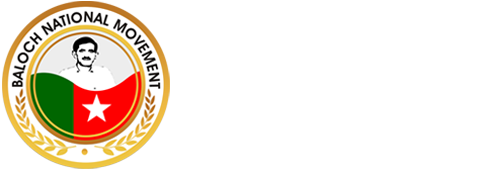- The Historical Context
- The Aftermath of Pakistan’s Occupation
- Occupation and Resistance
- Resource Exploitation: A Systematic Plunder
- Gwadar Port: Profits Over People
- Pakistan Coast Guards: Enforcers of Exclusion
- Foreign Collusion: Reko Diq and CPEC
- Environmental Devastation
- Deprivation of Political Freedom
- Human Rights Violations
- Gradual Genocide
The Historical Context
Before March 27, 1948, Balochistan stood as a sovereign and prosperous country at the crossroads of South and West Asia and the Middle East. Historians affirm that when British imperialism partitioned India to create Pakistan, it recognized Balochistan’s right to independence under international law. Any coercion or military aggression to annex Balochistan into Pakistan violated these principles.
Pakistan, inheriting a formidable military from the British, saw Balochistan’s rugged terrain, dispersed population, and internal divisions as an opportunity for expansion. Western powers, eager to counter Soviet influence in the region, supported this move, viewing Balochistan as a strategic buffer to block Soviet access to warm waters. Yet, the Baloch nation rejected this occupation through fierce resistance, asserting their inalienable right to self-determination.
The Aftermath of Pakistan’s Occupation
Pakistan’s annexation unleashed a humanitarian crisis and entrenched instability. A once-independent Balochistan, capable of fostering regional stability, was destabilized by British miscalculations and Pakistani aggression. Today, it endures as:
- An occupied territory
- A nation stripped of its natural wealth
- A region denied political freedom
- A site of rampant human rights abuses
- A victim of gradual genocide
Occupation and Resistance
Balochistan remains under occupation because its people have continuously resisted Pakistan’s attempts to assert control over their land. Anthropological and political scholars note that sustained resistance against an occupier signals a nation’s refusal to relinquish its identity and rights. This affirms Baloch’s status as a distinct nation, though global powers, swayed by geopolitical interests, have ignored their obligations to uphold its sovereignty.
Pakistan’s failure to dominate Balochistan without resorting to violence perpetuates a cycle of repression and resistance. This deadlock stalls human development, claims countless lives, and traps a strategically vital region in perpetual conflict.
Resource Exploitation: A Systematic Plunder
The Baloch struggle transcends mere resource protection—it’s a fight for exclusive control over their land and destiny. The Baloch demand a return not to the post-1948 status quo, but to the pre-November 13, 1839 era, before British forces invaded and seized their homeland under the pretext of military necessity.
Pakistan’s exploitation of Balochistan’s resources is methodical, employing both immediate grabs and long-term demographic engineering. The state has incentivized Punjabi dominance in federal institutions, encouraged non-local settlement in Baloch cities, and sidelined indigenous representation to entrench its grip.
Gwadar Port: Profits Over People
The Gwadar Port Authority, established in 2002, exemplifies this exploitation. Despite its location in Balochistan, Baloch workers are systematically excluded from employment. The port generates significant revenue, yet profits flow to Islamabad or are siphoned off by a non-local elite—military officials, bureaucrats, and Punjabi stakeholders. Local Baloch communities see no economic benefits, only displacement and marginalization.
Pakistan Coast Guards: Enforcers of Exclusion
Created in 1971, the Pakistan Coast Guards, a 15,000-strong force, patrol Balochistan’s 700-kilometer coastline. Though the region’s maritime resources are vital to local survival, the force is overwhelmingly Punjabi, with Baloch representation below 2%. This force, which safeguards Punjabi interests, denies the Baloch living along the coast control over fishing zones, trade routes, and economic opportunities. Fishermen face frequent harassment, with boats being seized and fishing grounds restricted, severely crippling their livelihoods.
Worse, credible reports implicate the Coast Guards in corruption, profiting from narcotics trafficking, arms smuggling, and human trafficking. This illicit economy fuels addiction, strengthens criminal networks, and further erodes Baloch society, while contributing to the global spread of narcotics. Pakistan’s refusal to entrust coastal security to Baloch forces reflects a deeply entrenched occupation mentality, focused on suppressing Baloch interests while maximizing resource extraction.
Foreign Collusion: Reko Diq and CPEC
Pakistan leverages Balochistan’s wealth to woo foreign players, offering resources at bargain rates to prop up its faltering economy and create international complicity in the plunder. The Reko Diq project in Chagai, home to one of the world’s largest gold and copper reserves, saw companies like Chile’s Antofagasta and Canada’s Barrick Gold extract billions in resources. Between 2010 and 2020, an estimated 2 million ounces of gold and 20 million tons of copper were mined, yet Baloch communities saw no schools, hospitals, or roads built in return. Mining has poisoned water supplies with heavy metals and turned fertile land barren, deepening local misery.
The China-Pakistan Economic Corridor (CPEC), linking Gwadar to China’s Xinjiang via a $62 billion network of infrastructure, promises development but delivers displacement. Local fishermen, once reliant on Gwadar’s waters, have been barred from their fishing grounds by security zones. Baloch labor constitutes less than 5% of CPEC’s workforce, and families living near construction sites face forced evictions, often with compensation that fails to cover the costs of relocation or resettlement. The recent opening of Gwadar International Airport in 2024 underscores China’s military ambitions, positioning the port as a potential naval outpost—a move that prioritizes Beijing’s Arabian Sea access over Baloch welfare.
Environmental Devastation
Resource exploitation has ravaged Balochistan’s environment. Reko Diq’s mining has contaminated aquifers with arsenic and cadmium, rendering them undrinkable. CPEC’s construction has felled thousands of acres of scrub forest, disrupting ecosystems and displacing pastoralists. These projects, cloaked as progress, leave behind a wasteland where Baloch communities once thrived.
Deprivation of Political Freedom
Political agency is the bedrock of equitable development, shielding communities from predatory exploitation. Pakistan, however, brands Baloch nationalism as terrorism to justify repression. Organizations like the Baloch National Movement (BNM), Baloch Republican Party (BRP), and Baloch Students Organization (BSO) pursue peaceful advocacy but face brutal crackdowns—leaders assassinated, activists disappeared. Puppet regimes, such as that of Sarfaraz Bugti, a documented death squad leader installed as Balochistan’s chief minister, ensure local voices are silenced.
Human Rights Violations
Enforced disappearances have scarred nearly every Baloch family.Over 20,000 people have been forcibly disappeared since the year 2000, many later found in mass graves or as mutilated corpses. This terror campaign aims to crush dissent and erase Baloch identity.
Gradual Genocide
Pakistan’s strategy—resource theft, demographic manipulation, and targeted killings—amounts to a slow-motion genocide. By stripping the Baloch of land, rights, and representation, the state seeks to obliterate their nationhood and impose a fabricated Pakistani identity.
For the past 77 years, since the Baloch national flag was lowered in the capital of a free Balochistan on March 27, 1948, the Baloch nation has endured these consequences. This suffering will persist unless the situation changes.
Let us stand in solidarity with the Baloch nation’s struggle and help transform this unique and beautiful corner of our world into a symbol of peace.


